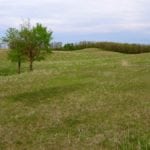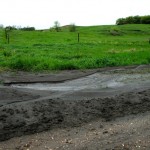
Tag Archives Prairie Farm Rehabilitation Administration
Comment: Bring back the PFRA
Soil conservation in Canada has been losing ground despite a general feeling erosion is a problem of the past

A made-in-Manitoba tragedy of the commons
Community pastures will suffer under recent changes to agricultural Crown land leasing in Manitoba

Editorial: Changing how we think

‘Disaster by design’ wreaks flood havoc on the Prairies
Meeting participants agreed the only way forward is to collaborate on a plan
AAFC Brandon beef research cuts condemned

Hundreds of jobs cut at Agriculture Canada
Farmers question the federal government’s commitment to publicly funded agricultural research
by Allan Dawson Almost 700 Agriculture and Agri-Food (AAFC) employees across Canada, including 55 in Manitoba, have been notified their jobs are on the line. Their unions say the notifications are part of a plan to eliminate an estimated 400 jobs as the federal government tries to cut spending. The Brandon Research Station’s beef researchFighting more deserts
Trees are just too boring
Agriculture Hall of Fame
Five Manitobans were honoured for their contribution to agriculture and their community at an induction ceremony for the Manitoba Agricultural Hall of Fame July 12. The Co-operator is featuring each in consecutive weekly editions.
Herb Lapp was born and raised on a farm at Alameda, Saskatchewan. He served in the Royal Canadian Air Force as a pilot during the Second World War. In 1949, he graduated in agricultural engineering from the University of Saskatchewan. In 1962, he obtained an MS in agricultural engineering from the University of Minnesota. Herb



